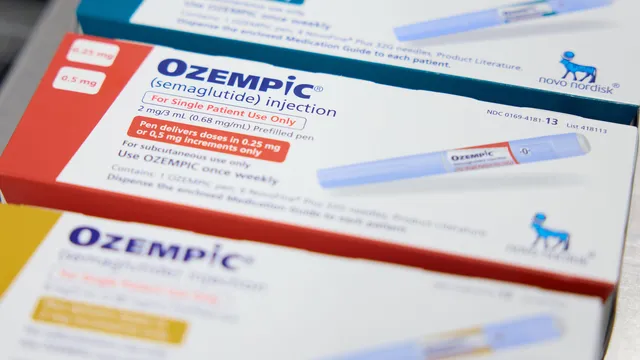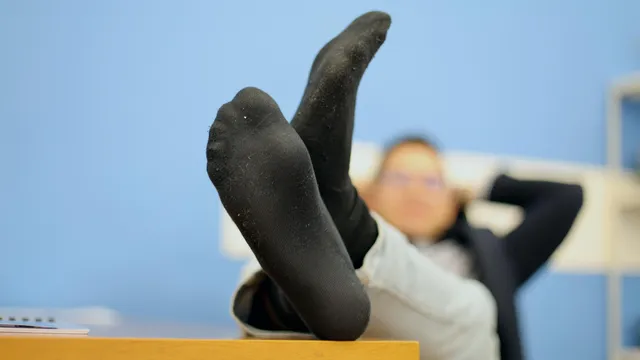Exercise can significantly reduce the risk of colon cancer in patients after treatment, according to a new study reported by NBC.
The late-stage clinical trial, published in the New England Journal of Medicine and presented at the American Society of Clinical Oncology (ASCO) annual meeting in Chicago, found that people who followed an exercise program after surgery and chemotherapy for stage 3 or high-risk stage 2 colon cancer could reduce their risk of cancer recurrence, new cancer diagnosis, or death by 28%.
“We approve drugs that have the same, and in some cases less, effect than this,” said Dr. Julie Gralow, chief medical officer at ASCO.
The randomized controlled phase 3 study involved nearly 900 patients from six countries. The average age was 61, and about 90% of participants had stage 3 colon cancer, which recurs in about 35% of patients within five years of treatment. Researchers are following each patient for about eight years from 2009 to 2024.
After completing surgery and chemotherapy, half of the participants joined an exercise program. The other half, the control group, were given a brochure encouraging them to exercise and eat healthily after recovery.
The ultimate goal of the exercise program is to get people to increase their physical activity to a certain level each week, regardless of the level at which they started.
The goal was a weekly increase of 10 MET hours—a unit that measures the metabolic equivalent of a given task, or MET, which is the amount of energy the body uses during a given task, whether sitting at a desk or running at full speed. How many METs are expended in a workout depends on the intensity and duration of the workout. For reference, one hour of brisk walking is equivalent to about 4 MET hours.
Participants slowly reached their goal during the first six months of the program. During the first year, they met with a trainer—a physical therapist, personal trainer, or kinesiologist—every two weeks to develop a personalized exercise plan and do supervised workouts. After the first year, participants met with their trainer once a month for two more years.
Each participant's exercise plan was tailored to their individual needs. The coaches developed a program based on the types of exercise the participants enjoyed in the past and the types of workouts that would fit into their lifestyle.
“For most people, that meant a brisk 45-minute walk four days a week,” explained Dr. Christopher Booth, a medical oncologist and professor of oncology at Queen's University in Ontario, Canada.
Butte, who led the study, and his team first wanted to understand whether assigning a coach would motivate people to exercise more after completing cancer treatment. If so, they wanted to know whether exercise would reduce the risk of cancer recurrence.
The answer to both questions was “yes.”
Eight years after recovery, 90% of people in the exercise group had no recurrence or new cancer diagnoses, compared with 83% in the control group. Of the 445 people in the exercise group, 41 died within eight years of cancer treatment, compared with 66 of the 444 people in the control group.
People who exercised more also had a lower risk of several other types of cancer, including breast cancer and other colorectal cancers. People who did not participate in the exercise program got between 5.2 and 7.4 MET hours of exercise per week less — which is equivalent to 1.5 to 2.25 hours of brisk walking.
“It's not as simple as telling people to exercise,” Booth said. “We know that for many people, it's very difficult to get into the habit of exercising. We really need [insurers] to cover this.”
The study is the first to randomly assign people who might not otherwise exercise after cancer treatment to an exercise program. It builds on observational studies showing that people with stage 3 colon cancer who exercise regularly live longer than those who don't.
“Exercise has almost no downsides. It should be part of standard treatment for colon cancer,” said Dr. Nancy Yu, medical director of the Young Adult Colon Cancer Program at MD Anderson Cancer Center at the University of Texas in Houston.
It is still unclear why regular exercise appears to have such a big effect on colon cancer recurrence, but more studies are showing that exercise can reduce the risk of breast, colon, and rectal cancer recurrence, sometimes by as much as 45%.
“There are potential hypotheses related to the effect of physical activity on insulin, body composition, and basal metabolism that may have antitumor effects,” said Dr. Jeffrey Meyerhard, co-director of the Colorectal Care Center at the Dana-Farber Cancer Institute in Boston.
However, it will be a challenge to help patients incorporate more regular physical activity into their lives after cancer, especially if they do not have access to a trainer or were not very active before their cancer diagnosis. It is also unclear what benefits exercise might have for prolonging the life of people with advanced colon cancer, which may be incurable.
"What's exciting about this is that it really confirms the evidence that people who exercise after being diagnosed with colorectal cancer can reduce their risk of recurrence and increase their chances of survival," said Mayerhard, adding that people need to understand that exercise is an adjunct therapy, not a substitute for standard treatment.
All participants in the study underwent surgery and chemotherapy before beginning the exercise program. For oncologists, being able to offer cancer survivors a scientifically based way to continue their recovery after treatment will be an important part of patient care, according to Booth.
“One of the most common questions oncologists hear when a patient finishes chemotherapy is, ‘What else can I do, doctor? ’ And the answer is clear. Now we can say that a structured exercise program with a trainer can improve outcomes,” he added. |BGNES

 Breaking news
Breaking news
 Europe
Europe
 Bulgaria
Bulgaria







